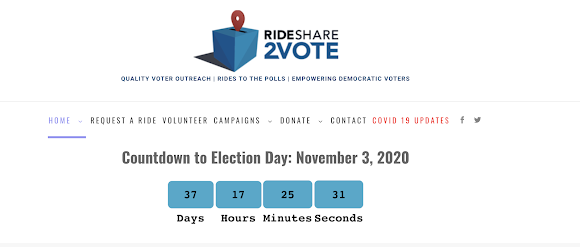This editorial by the editors of the Austin American-Statesman provides helpful, if urgent, guidance for police reform. We should all be concerned that Texas also allows no-knock warrants of the kind that resulted in Breonna Taylor's death. In fact, as per this February 1, 2019 article published in the Texas Monthly titled, "A No-Knock Raid in Houston Led to Deaths and Police Injuries. Should Police Rethink the Practice?" a similar horrific situation arose in Houston last year.
In response to Black Lives Matters together with the Austin Police Department's own culpability in aggressive policies leading to unnecessary death and injury, the current proposed city budget that you can read about here goes into effect on October 1, 2020, reducing the APD budget from $434 million to around $290 million, reapportioning it to social services and an alternative safe policing program.
In the meantime and in response, Gov. Greg Abbott supports legislation that would punish cities that make police force reduction cuts by withholding from local governments opportunities for city growth via tax revenues and denying them annexation powers. These bills are on the horizon for the next Texas legislative session that re-convenes in January, 2021.
I want to thank the editors of the Austin American-Statesman for calling out Abbott's lack of leadership while offering clear directions for policy.
-Angela Valenzuela
#EndPoliceViolence #endpolicebrutality #atxcouncil @austintexasgov #SayHerName #SayHerNameBreonnaTaylor #CJReform #TexasCJC
Editorial: We need reform. Abbott gave us a campaign stop.
by American Statesman Editorial Board
September 27, 2020
What a squandered opportunity.
After months of Texans holding largely peaceful protests demanding changes in the way communities are policed, Gov. Greg Abbott took to the stage this week to discuss public safety. His big announcement? Rioters who assault police officers, hurt others or cause property damage — crimes already punishable by jail time — should face stiffer penalties.
Certain illegal acts should be even more illegal.
Of course, such behavior is dangerous and intolerable. Such acts have been the outliers, though, in the otherwise nonviolent protests in Texas over the past few months, since George Floyd’s death galvanized calls to end abusive police practices. Yet Abbott shamefully squandered this important moment, ginning up outrage about rioters and ignoring the deeper injustices that brought protesters to the streets to begin with.
Perhaps we should have expected as much: Abbott’s appearance was a campaign event, and his message played nicely into the Republicans’ law-and-order mantra this election season. But in this moment, Texans needed Abbott to discuss policing not as a politician, but as our governor.
We should be talking about no-knock warrants and SWAT raids. Abbott’s press conference came the day after a Louisville, Kentucky, grand jury cleared police officers for killing Breonna Taylor during a horribly botched SWAT raid of her apartment. Just sit with that for a moment: The law allows police to get warrants to bust into people’s homes while they sleep, and officers can use deadly force if a resident, like Taylor’s boyfriend, opens fire on the people he thinks are intruders.
Last year a Houston couple died in a similar type of violent and unnecessary raid. Authorities later indicted an ex-Houston cop for allegedly falsifying information to get the warrant.
The larger practice of no-knock raids still cries out for dramatic reform. This tactic should be reserved for only the most extraordinary cases and justified by rigorous vetting. No one else should die in their own home from a pointless raid.
We should be talking about banning chokeholds and requiring de-escalation. Both are provisions of the George Floyd Act proposed last month by the Texas Legislative Black Caucus. Neither should be controversial with anyone who watched the video of Floyd gasping to breathe in his final moments, a Minneapolis police officer’s knee pressed into his neck.
We should be talking about ending arrests for fine-only offenses. As we’ve noted before, these arrests drive up jail costs for taxpayers, contribute to overcrowding and burden defendants with a jail stay when a simple summons to appear in court would do. Ending such arrests is also a component of the George Floyd Act, and if we’re serious about addressing racial inequities, this is one of the places to start. Among those facing these low-level charges, the data show minorities are more likely to go to jail and whites are more likely to get a ticket.We should be talking about reining in pretextual traffic stops. Because Sandra Bland, pulled over in 2015 for failing to use her turn signal when changing lanes, didn’t have to die in a Waller County jail cell. Because Javier Ambler II, pulled over last year after failing to dim his headlights and then fleeing from Williamson County deputies, didn’t have to die after repeated jolts from a Taser.
We should be talking about police tactics against protesters. We recognize officers need tools to defend themselves or to disrupt a gathering that has turned dangerous. But we’ve also seen the horrific head injuries Austin police inflicted — in some cases on bystanders — by using so-called “less lethal” ammunition on protesters in May. APD has since stopped using lead pellet-filled “beanbag” rounds for crowd control. Lawmakers should make that prohibition statewide.
We could go on. Qualified immunity. Police training. Transparency when someone dies in police custody. Abbott had his pick of important public safety issues to discuss this week. He chose instead to rail about rioters.
What a waste. Texans hunger for real public safety reforms. Abbott was content to play politics as usual.









